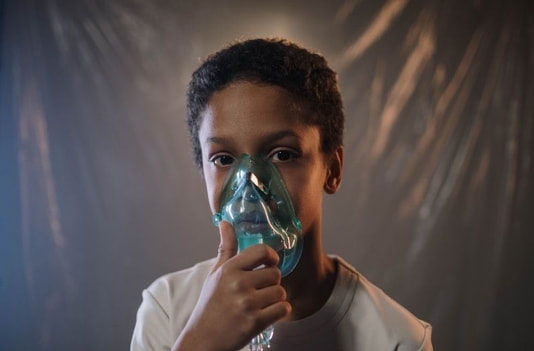|
COVID-19 has impacted everyone. The United States has seen, thus far, more than 27.8 million cases and more than 488,000 deaths. Data shows, however, that some groups of people have been impacted more - are at a greater risk - than others. This is true specifically for people of color in the United States. Black Americans, for example, are 1.1 times more likely than non-Hispanic white persons to contract COVID-19, 2.9 times more likely to require hospitalization and 1.9 times more likely to die from COVID-19.
There are several underlying factors for the increased risk including, according to the CDC, healthcare access and utilization, occupation, housing, and education, income and wealth gaps. However, it is telling that at the top of the CDC’s list is discrimination - a factor that greatly impacts every system in America that is supposed to help protect its citizens. The systemic failures have led, for instance, to diminished access to healthcare services. They have led to the other factors on the list. On an individual level, “Discrimination, which includes racism, can lead to chronic and toxic stress.” Toxic stress is well-known to affect a person’s health long-term, particularly when that stress is felt through childhood and into adulthood, as it is for people of color in the United States. The disparities in how COVID-19 has affected racial and ethnic minority groups in the U.S. does not have to do with the virus itself but rather with the structure and reality of a country that has work to do.
0 Comments
 Black youth (ages 0 to 17) are disproportionately overrepresented in the foster care system. Making up just 14% of the child population in 2018, they accounted for 23% of all youth in foster care that year. According to the National Association of Student Personnel Administrators, Black children also “are 2.5 times more likely to be placed in foster care. Once in foster care, Black foster youth stay longer and are far less likely to be adopted.” And in Pennsylvania, as of 2016, 43% of Black youth in the state were in foster care. The overarching reason behind this disparity is well known to be racial discrimination. The good news is that the numbers have actually been improving, having declined from 30% in 2009 to 23% in 2016 (the rate has been stagnant at 23% since). But some good news is not enough. In fact, it’s far from it. As Los Angeles County Supervisor Sheila Kuehl said when the county’s Department of Children and Family Services created an Office of Equity, “We want to create the kinds of programs and systems that allow us to make the best, most culturally competent decisions we can for our 30,000 children in foster care.” In short, we have work to do. Over the past month, we’ve talked about who mentors are and the impact they can have on their mentees. One thing we haven’t discussed, however, is why - why become a mentor? And so, we’ve decided to close out National Mentoring Month (a day late) with a look at what motivates our mentors and board members to be a part of the R.J. Leonard Foundation and, more importantly, our Fellows’ lives.
For many, their upbringing and present family life have encouraged them. “Coming from a nurturing family and now being a parent of three young adult children, I understand and appreciate the importance of having support at this pivotal time in life,” says Kathleen - both a board member and mentor, and the Foundation’s last Program Director. “Without guidance to navigate through education and career decisions, and having a safety net to fall back on in times of crisis, the road to independence and self- sufficiency can be daunting.” Board member Kerry agrees, “I have always been someone who believes in mentoring and teaching. As someone raised by a teacher, I saw firsthand the value of people passing down information learned to one another.” Outside of family, many at the R.J. Leonard Foundation have been affected by a mentor of their own. “I’ve been fortunate to have a number of mentors that have authentically impacted my life. The perspectives offered, guidance, reflection and shared experiences have influenced my life’s decisions. I am immeasurably in a better place today and better positioned for tomorrow because of these individuals,” describes Miles, RJLF’s Board Chair. The desire to pass on such a positive and far-reaching influence is often a motivator for our volunteers. Just as it will be for our Fellows in the years to come. There are many other reasons why mentors become mentors, each one unique to the individual. We encourage you to find out more about what motivates our RJLF family and what might motivate you by contacting us at [email protected] or 833-475-5363. |
Categories
All
Archives
July 2024
|
|
1097 Street Road
New Hope, PA 18938 |


 RSS Feed
RSS Feed
